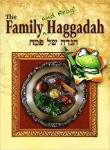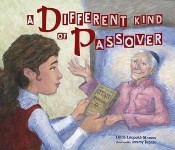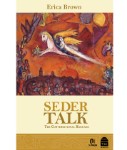Rides of (married) lives; thoughts on “#ShalomBayis” by Penina Shtauber

Buy this book at Amazon or for Kindle
It is fun and educational to observe one’s emotional state as it keeps shifting. For example reading Penina Stauber‘s “#ShalomBayis”, a followup to her #ShidduchCrisis, I noticed that I went from angry, to confused, to curious, to entertained and finally to understanding. At the end of the author’s note she wrote, “I hope the stories incite thoughts and conversation.” Mission accomplished and more. It went beyond that and evoked an emotional ride too.
Quick note for the uninitiated: The book’s title as explained on wikipedia::
[It] is the Jewish religious concept of domestic harmony and good relations between husband and wife. In a Jewish court of law, shalom bayit is the Hebrew term for marital reconciliation.
In my book two characteristics makes this book outstanding: its multitude of perspectives and its almost catalogue-like approach of potential marital issues. The first two of the 25 stories included in the book were set in the orthodox world. I am not of that world, so while I respect, attempt to understand and often emphasize with aspects of their lifestyle and value system I am far from sharing it. These two stories offered solutions for the newlyweds issues that I so strongly disagree with and they made me angry. I quickly jumped to the conclusion that the whole book will be like this, so I had stopped reading it altogether. Didn’t want to upset myself further.
I am so glad I forced myself to march on. As I was progressing through the book I discovered that it is not from a single perspective. Quite the opposite: its strength is that you can encounter–and if you wish to do so imagine yourself in the position of–so many perspectives. The main characters in these stories are both men and women, orthodox and secular, rich and poor, Israeli and American. The tension between the couples often are derived from their different religious or socioeconomic backgrounds, hence their inherent value system offered different solutions for the problem than their spouses’. E.g. in my secular world the power and truth of the “love can conquer all [problems]” saying is treated as evident. At the same time in the religious world religious dogma, belief and tradition is often more important. Even the world “love” means different things. My biggest pleasure in reading this book was the very fact that I was exposed to different points of views than my own. That in itself provoked thoughts and the need for conversation with my own wife, just as the author intended.
I also admire the author’s approach to providing answers. Sometimes she meticulously did other times she left the stories open ended. Sometimes she ended a story with a specific answer–with which you could agree with or not, depending on your own background–other times she just pointed to a direction the specific couple may find their own answers. It takes courage and creativity to write this way. She showed her creativity in a varied writing style too; e.g. there was a story which read like an extended classified or craigslist ad.
Some of the issues the book covers
- How to deal with financial hardship,
- Decision making on how to spend money
- Disparate levels of income between spouses
- Spousal fidelity
- Power/control balance
- Conforming to social standards
- Degree of religious observance
- Blindly trusting to higher power vs. proactive approach
- The pressure and problems of getting pregnant
- The need for a mother’s personal wellbeing vs the standard (or commandment) of giving birth to lots of children
- Dealing with changes of the body…
This short list gives you a peek, although I didn’t even finish cataloging all the stories’ topics. One thing I need to note that all the couples here consiste of cis heterosexual men and women. While it is inclusive in many ways but it still strictly follows the heteronormative narrative. While this narrows down the possible marital issues there are still plenty of subjects to explore. If this omission doesn’t bother you I can wholeheartedly recommend the book. It is stimulating, challenging you to face your own biases and perspectives and also witty with deep enough insights into problems any of us, married people, face. Go ahead and read it not just for the sake of ShalomBayis, but also for your own self-improvement.
The book series’:
The book was published on September 16, 2020.
Publisher’s description:
Mariage is fun. Marriage is exciting, and romantic, and magical. And it’s also… not.
It’s the exhaustion of waking up at 4 a.m. for your newborn baby. It’s the stress of bills, the pang of jealousy, the mesh of personalities that don’t always mesh.
It’s finding out that the guy you dated is different than the one you live with. That the woman you married isn’t what she seemed.
Welcome to shalom bayis.
***
Shalom Bayis: The Jewish religious concept of domestic harmony and good relations (or shalom) between husband and wife. These short stories highlight some tried and tested methods of attaining Shalom Bayis. Not all of them work… some even fail terribly. A humorous, uncensored, thought-provoking perspective.
Disclaimer: I have received an electronic copy of this book from the author to review.















